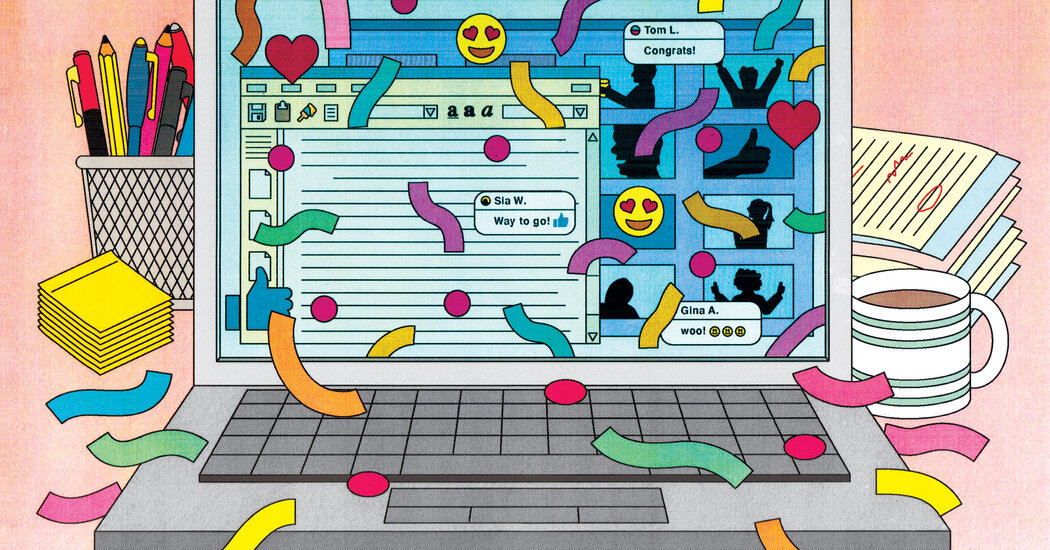Research, she said, shows that home workers generally value autonomy and independence, and that their productivity is negatively affected when they feel controlled by managers. But, she said, when other people are working around you, such as in a coffee shop, “it indicates work and is a sign of work.” Physical co-working spaces are also attracting more people in recent months.
At the start of a Caveday session, a facilitator places people in smaller breakout rooms to determine their intentions. In a recent cavern, the Zoom chat facilitator also shared a link to a list of three-word quotes — including “trust the process” and “branding is essential” — and invited everyone to share which resonated the most. People also updated their Zoom displays with their name, location, and what task they were supposed to perform there.
While fans of virtual co-working often cite productivity as a benefit, the term is not universally embraced. (Mr. Redleaf, of Caveday, said that “we’re not productivity brothers, we’re about a better relationship with work.”)
Cal Newport, who helped popularize practices including deep work and focused work blocks, wrote last year, “A growing segment of my audience was clearly fed up with ‘productivity,’ and they’re not alone.” Mr. Redleaf called productivity “the P word” and compared Caveday to SoulCycle, which combines elements of wellness with fitness. Ricky Yean, the chief executive of Flow Club, has called his company “basically Peloton for co-working”. A recent email from Flow Club noted that Benjamin Franklin pioneered time blocking, before Cal Newport popularized it and Flow Club made it easier.
Just like in a real office environment, users of these platforms can start to recognize the regular customers and some start to develop relationships, both personal and professional.
Anthony Ronda, 30, a software engineer in Hillsdale, NJ, who is starting a virtual table games company, participates in several Focusmate sessions a day and has found value in being accountable to another person while he works. He has also experienced a more personal benefit: he met his friend at Focusmate earlier this year. The two plan to meet in person for the first time later this month.
Mr Ronda said they kept finding each other on the other side of the camera as they logged into sessions at the same time; soon they started scheduling times to work together and exchanging Signal phone numbers. “It’s clearly not a dating platform,” he said of Focusmate. “It just happened that way.” He has no plans to return to an office anytime soon.

